Moving to a new place, starting a new job, or beginning any “next stage” of life is an opportunity for you to change something about yourself. Rebrand yourself! No one knows you, so if your name is AJ and you want to go by Andrew, go ahead. If you’ve always been “the drunk one,” you can now be the intellectual — or the guy who wears funny hats.

Companies — and people — rebrand themselves all the time. It might be to turn around sales or boost their image. Rebranding is a common tactic among companies to help change the public perception of their product.
Sometimes it works… and sometimes it doesn’t. Let’s take a look.
The reinvention winners
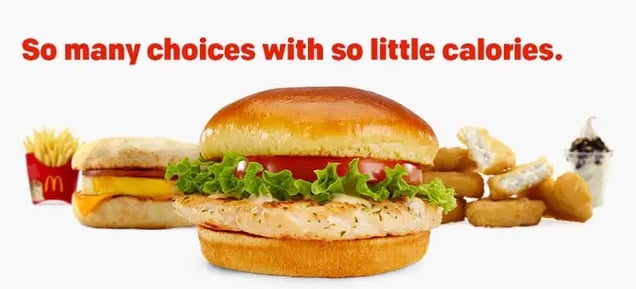
McDonald’s
First sales increase in two years… would you like salad with that?
McDonald’s has been trying to rebrand itself into a healthy company for the last couple of years. Hey, being known as “ the brand that made America obese” is not a good slogan. In July 2014, McDonald’s Chief Executive Don Thompson said he’s trying to turn McDonald’s into a “more trusted and respected brand… which customers can feel good about.” (Inc.com).
And from this new campaign of salads — and “transparency” — like this video describing how chicken nuggets are made Micky D’s sales just rose for the first time in two years. They’re up 4% globally as of October 2015, according to Reuters. Clearly, something’s working. Or they’re just taking advantage of food deserts… either one.
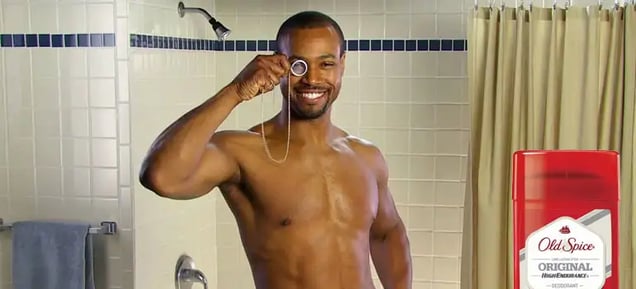
Old Spice
A 107% increase in sales
Old Spice wanted something new, so the company created a ridiculous commercial that boasts over 52 million views on YouTube. Critics said things to the tune of “So what? You made a funny commercial. It’s not actually going to increase sales.”
Bet they feel stupid now. Old Spice started by changing the name of their deodorant from Glacial Falls to Swagger, and by the end of the campaign their whole company had changed from being an antiquated deodorant brand to a cool hip brand. And sales increased 107% (AdWeek). Victory.
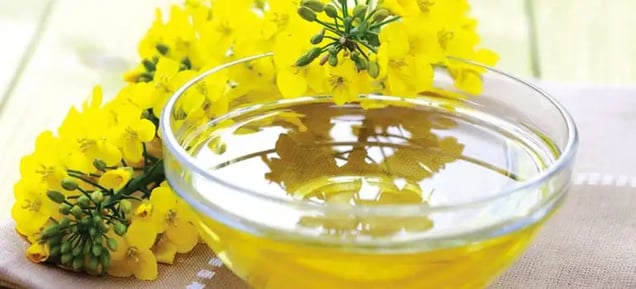
Canola Oil
Now 16% of the global vegetable oil market
Canola Oil is made from a plant called Rapeseed. Rapeseed oil has been used as plant fuel for millennia, but its commercial use in food is relatively recent. It entered the commercial market in 1957, but its greenish color and unsavory flavor made it unpopular. And it had high levels of erucic acid, a potentially dangerous chemical. Plus… the name.
But in the 1970s, two Canadian scientists bred Rapeseed to create a new strain. They dubbed this new oil variant Canola, and it had a much lower erucic acid content, and tasted great. And the word “canola” has no sexual assault connotations, which is another bonus. Canola now dominates the vegetable oil market in Canada, and makes up 16% of the global vegetable oil market (statistica.com).
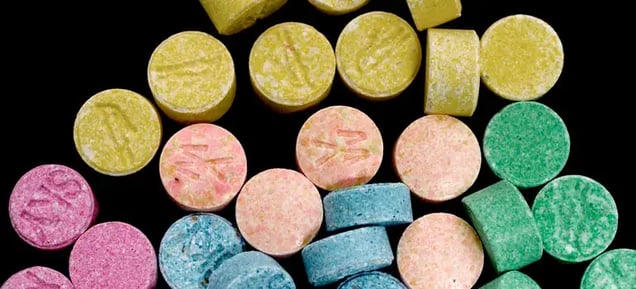
MDMA
From Ecstasy to Molly
The party drug MDMA has gone through a major rebranding over the past decade. From being called Atom in the ‘60s and ‘70s, to Ecstasy in the ‘80s and ‘90s, it’s now known as Molly.
The idea behind this is that Molly is “pure” ecstasy, though the reality of knowing chemical compositions of illegal drugs is nearly impossible. The National Institute of Health (NIH) asserts that “pure” molly can consist of anything from Ketamine to synthetic cathinones (bath salts).
However, its rebrand led to increased MDMA usage in high school students, according to the NIH. It’s increasingly ubiquitous in pop culture as well, as the likes of Miley Cyrus and 2 Chainz have alluded to Molly in their songs.
The rebranding fails
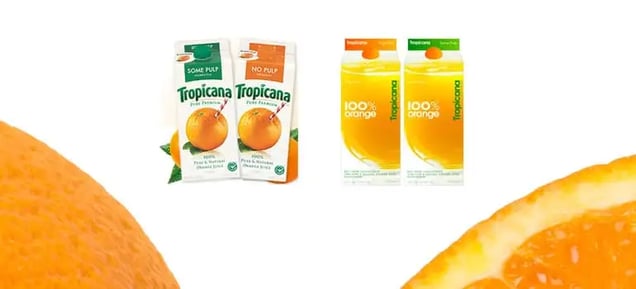
Tropicana
A 20% sales drop
The PepsiCo-owned orange juice company wanted to change its packaging from the unmistakable straw-in-orange model (“it must be fresh, Johnny, look, the straw goes right into the orange!”) to an artsy modern look. They did this for about a month, and after a 20% sales drop and 100s of complaints, they decided to go back to the original branding. Good choice, guys.
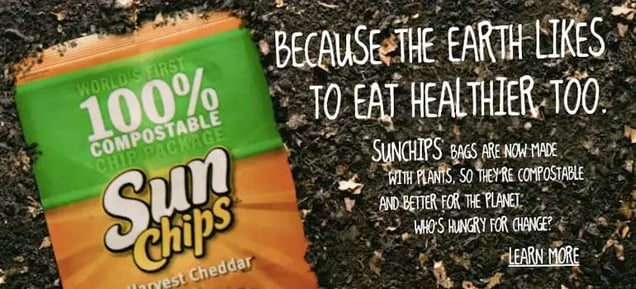
Frito Lay and Sun chips
11% sales drop
Anyone who bought Sun Chips circa 2010 will remember the deafening sound of their crinkly-ass packaging. This was an attempt to become “greener,” as the material was 100% compostable. But their sales dropped 11%, and Frito Lay collectively sighed, thinking: “Well shit. We can’t make something green if it’s obnoxious…” Because in the epic battle between crackly packing vs. saving the planet, crackly packaging obviously takes precedence.
More proof that many Americans give zero f***s about the environment.
Neutral (too early to tell)
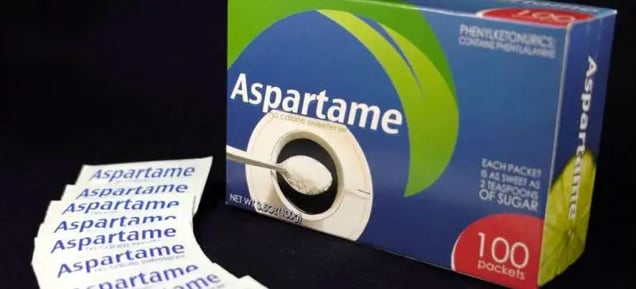
Aspartame
Tackling the $11.6 Billion Sugar Substitute Market
Aspartame has been almost synonymous with carcinogens for the last couple of years after some hippy studies showed it causes cancer.*
But the exact same molecules are now called NutraSweet and AminoSweet, due to the two amino acids used in making the sweetener. This is an attempt to retake the top spot in the sweetener market, which has been held by Sucralose – an alternative sweetener to aspartame – since 2008
*The verity of these studies has been disproved by both the EPA and the EFSA, but the public still wants a new brand for a product to prove it is not associated with cancer in any way.
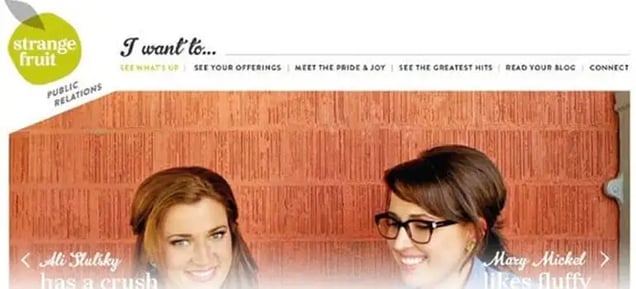
Strange Fruit PR
A public relations nightmare
The Austin-based public relations company was forced to change its name to Perennial Public Relations in 2014 after a social media backlash. Strange Fruit is singer Billie Holliday’s ode to the many lynched black people swinging from poplar trees in the South.
The company hasn’t gone under yet, so we’ll count it as a win. But it might not be the PR company you really want to hire: They can’t even cover up something as “under the rug” as racism in America.
So, what have we learned?
“A rose by any other name would certainly smell as sweet.”Shakespeare
That may be true, Willy Shakespeare, but you weren’t in charge of selling roses, were you? After all, a rose salesman would balk at changing the name of the rose, a word now ubiquitous with Valentine’s Day, first dates, and romantic mistakes.
The act of branding a consumable and a company is incredibly important. If something is going wrong with your company, a name change, or an inversion of company policy can be integral to the lasting survival of your corporation.
Branding and rebranding your company is one of the most important choices a company can make – after all, getting people to buy Canola Oil probably would have been a lot more difficult if they kept calling it Rapeseed.
